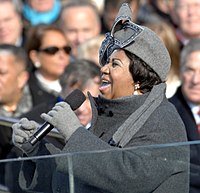My Country, 'Tis of Thee - Wikipedia, the free encyclopedia
Samuel Francis Smith wrote the lyrics to "My Country 'Tis of Thee" in 1831,[4] while a student at the Andover Theological Seminary in Andover, Massachusetts. His friend Lowell Mason had asked him to translate the lyrics in some German school songbooks or to write new lyrics. A melody in Muzio Clementi's Symphony No. 3 (also called 'The Great National' and contains the melody of 'God Save the Queen' as a tribute to Clementi's adopted country) caught his attention. Rather than translating the lyrics from German, Smith wrote his own American patriotic hymn to the melody, completing the lyrics in thirty minutes.
Smith gave Mason the lyrics he had written and the song was first performed in public on July 4, 1831,[4] at a children's Independence Day celebration at Park Street Church in Boston. First publication of "America" was in 1832.[4]
1My country, 'tis of thee,Sweet land of liberty,Of thee I sing;Land where my fathers died,Land of the pilgrims' pride,From ev'ry mountainsideLet freedom ring!2My native country, thee,Land of the noble free,Thy name I love;I love thy rocks and rills,Thy woods and templed hills;My heart with rapture thrills,Like that above.3Let music swell the breeze,And ring from all the treesSweet freedom's song;Let mortal tongues awake;Let all that breathe partake;Let rocks their silence break,The sound prolong.4Our fathers' God to Thee,Author of liberty,To Thee we sing.Long may our land be bright,With freedom's holy light,Protect us by Thy might,Great God our King.Additional verse to celebrate Washington's Centennial:[5]
5Our joyful hearts today,Their grateful tribute pay,Happy and free,After our toils and fears,After our blood and tears,Strong with our hundred years,O God, to Thee.Additional verses by Henry van Dyke:
6We love thine inland seas,Thy groves and giant trees,Thy rolling plains;Thy rivers' mighty sweep,Thy mystic canyons deep,Thy mountains wild and steep,--All thy domains.7Thy silver Eastern strands,Thy Golden Gate that standsFronting the West;Thy flowery Southland fair,Thy North's sweet, crystal air:O Land beyond compare,We love thee best!Additional Abolitionist verses by A. G. Duncan, 1843:[6]
8My country, 'tis of thee,Stronghold of slavery, of thee I sing;Land where my fathers died,Where men man’s rights deride,From every mountainside thy deeds shall ring!9My native country, thee,Where all men are born free, if white’s their skin;I love thy hills and dales,Thy mounts and pleasant vales;But hate thy negro sales, as foulest sin.10Let wailing swell the breeze,And ring from all the trees the black man’s wrong;Let every tongue awake;Let bond and free partake;Let rocks their silence break, the sound prolong.11Our father’s God! to thee,Author of Liberty, to thee we sing;Soon may our land be bright,With holy freedom’s right,Protect us by thy might, Great God, our King.12It comes, the joyful day,When tyranny’s proud sway, stern as the grave,Shall to the ground be hurl’d,And freedom’s flag, unfurl’d,Shall wave throughout the world, O’er every slave.13Trump of glad jubilee!Echo o’er land and sea freedom for all.Let the glad tidings fly,And every tribe reply,“Glory to God on high,” at Slavery’s fall.
Other anthems set to the same music:
- ^Public domain, taken from here
- ^"My Country, 'Tis of Thee". The Gilder Lehrman Institute of American History. Retrieved December 6, 2014.
- ^Snyder, Lois Leo (1990). Encyclopedia of Nationalism. Paragon House. p. 13. ISBN 1-55778-167-2.
- ^ abcGarraty, John A., and Carnes, Mark C., eds. (1999). American National Biography. 20. New York: Oxford University Press. p. 281.
- ^Andrews, E. Benjamin (1912). History of the United States. New York: Charles Scribner's Sons.
- ^Jarius Lincoln, [ed.] Antislavery Melodies: for The Friends of Freedom. Prepared for the Hingham Antislavery Society. Words by A. G. Duncan. (Hingham, [Mass.]: Elijah B. Gill, 1843), Hymn 17 6s & 4s (Tune – "America") pp. 28–29.Some of these verses can be heard in the Arizona State University recording of the Antislavery Ensemble.
- ^Hansen, Drew D. (2003). The Dream: Martin Luther King, Jr. and the Speech that Inspired a Nation. New York, NY: Harper Collins. p. 83.
- ^Keveney, Bill (September 19, 2001). "Audience identifies with low-key Leno". USA Today. Retrieved July 3, 2009.
- ^Art For Freedom. "Art For Freedom". Art For Freedom.
- Collins, Ace (2003). Songs Sung, Red, White, and Blue: The Stories Behind America's Best-Loved Patriotic Songs. HarperResource. ISBN 0060513047.
- Music, David M.; Richardson, Paul A. (2008). I Will Sing the Wondrous Story: A History of Baptist Hymnody in North America. Macon, Georgia: Mercer University Press. ISBN 0865549486.